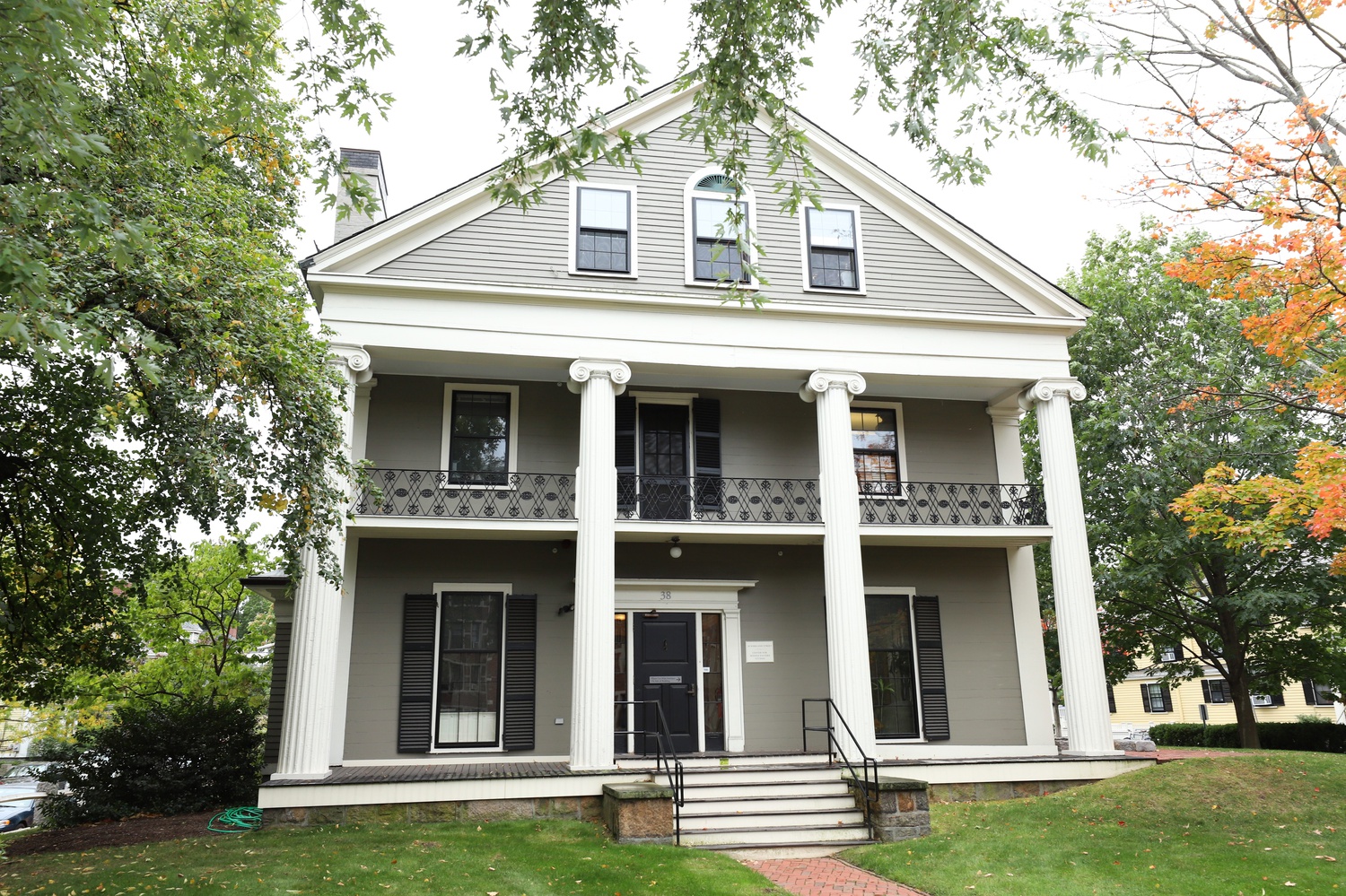
News
Summers Will Not Finish Semester of Teaching as Harvard Investigates Epstein Ties

News
Harvard College Students Report Favoring Divestment from Israel in HUA Survey

News
‘He Should Resign’: Harvard Undergrads Take Hard Line Against Summers Over Epstein Scandal

News
Harvard To Launch New Investigation Into Epstein’s Ties to Summers, Other University Affiliates

News
Harvard Students To Vote on Divestment From Israel in Inaugural HUA Election Survey
Harvard’s Targeting of CMES Should Alarm All of Us

The summer before I came to Harvard, a Kurdish friend from home forwarded me an article on a Center for Middle Eastern Studies lecture series titled “New Horizons in Kurdish History.” The series brought together scholars and thinkers across disciplines to discuss important topics in Kurdish studies, a field that is seldom represented in academic spaces.
As an incoming first-year unsure of the resources and support that would be available to me in order to focus on a field of study I hadn’t previously engaged with academically, hearing of this series gave me immediate solace that centers like CMES and faculty behind the series would be supportive of such efforts.
Now, the very professor who helped spearhead this programming, Cemal Kafadar, has been “dismissed” from his position as director of CMES. Kafadar was not the only member of CMES leadership who lost their job last week — History professor and associate director Rosie Bsheer was also “dismissed” from her role at CMES by University administration.
Many have attempted to justify the effective gutting of CMES by claiming that the center has “disproportionately” focused on Israel and Palestine. Such attempts are reductive: Not only do they dismiss the scale of the atrocities being committed against the Palestinian people, but they also dismiss the crucial work CMES has done to center the study of global self-determination movements. To single out the center’s programming on Israel and Palestine and claim that such programming receives disproportionate focus is to tacitly erase the years of work CMES has done to spotlight growing bodies of research on Kurdistan and beyond.
CMES and its leadership have made it possible for students like myself to delve into the study of traditionally silenced histories like those of the Kurdish people across Iraq, Iran, Turkey, and Syria. The center’s faculty played a critical role in helping to establish the first Sorani Kurdish language course at Harvard in 2023; because of this program, I was able to begin learning my mother tongue in a classroom setting for the first time ever. Just three weeks ago, I attended a lecture on the medical and environmental implications of the 1988 Halabja Massacre — a massacre my own family survived, and a massacre that has received nowhere near the awareness it deserves.
CMES has made it possible for us all to attend talks on under-discussed topics ranging from the experiences of Syrian refugees in Turkey to Kurdish literature in translation. The center has equipped me with the knowledge and resources needed to continue my studies on Kurdistan and narratives of statelessness.
Yet, it should not take anyone’s personal stakes or an emphasis on CMES’ non-Palestine programming for the University to understand the importance of the center’s leadership’s work. CMES’ programming on Palestine has been invaluable in foregrounding the importance of interdisciplinary scholarship on the region. Indeed, the center has made it possible for students to meaningfully engage with Palestine studies at an institution that has long silenced and attacked Palestinian and pro-Palestine voices.
CMES programming on Palestine seems to be the source of its heightened scrutiny. The dismissals of the very professors who have made studying Palestine at Harvard a possibility sends a clear message: Even efforts to work within institutional bounds will be silenced so long as they implicate the University’s financial and political investments. One example is Harvard Medical School’s cancellation of a class session with patients from Gaza on the grounds that it was “one-sided.”
Attacks on Palestine studies are attacks on the study of colonialism, statelessness, and self-determination movements across the world. They are attacks on any and all scholarship on the modern Middle East, and they rest on the premise that only dominant histories aligned with institutional interests are of academic value.
At CMES, students like myself have found belief in and motivation for our academic capacities as aspiring scholars of a region which has long been flattened in the eyes of the “West.” We students have found support and mentorship from academics who truly believe in our efforts to bring forth silenced histories into the academic realm. Throwing CMES into disarray does not only threaten Palestine programming, it also discourages support for all of the other programming that Kafadar and Bsheer led, including the study of all stateless minorities in the region.
The attack on CMES is an attack on us all, and it only further exemplifies what has been crystal clear for the last year and a half: At Harvard, only particular narratives are worthy of study — and particular peoples worthy of humanization.
Dalal M. Hassane ’26, a Crimson Editorial editor, is a History and Literature concentrator in Leverett House.
Want to keep up with breaking news? Subscribe to our email newsletter.
